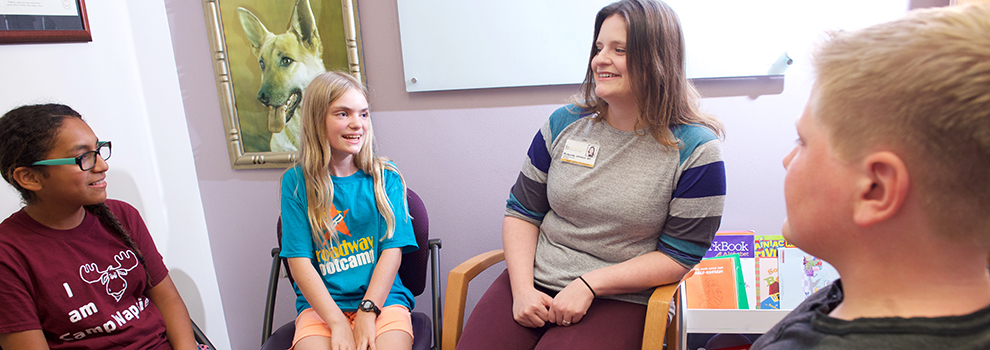Education and Conferences

Didactic time is protected and averages one half-day per week.
Core Curriculum
Broadly, topics include ethics, forensics, psychopharmacology, psychopathology, psychotherapies (including DBT, CBT, Family Therapy, Psychodynamic Psychotherapy, Mentalization-based Approaches, Applied Behavioral Analysis, Habit Reversal Therapy, and other Evidence-based Psychotherapies), development, neuropsychiatry, and consultation-liaison which are held on a rotating two-year schedule.
Child and Adolescent Psychiatry Journal Club/Case Conference
Child and Adolescent Psychiatry Journal Club is a monthly resident-led presentation of either a current journal article or a seminal paper for review and discussion to the other residents and faculty. With a faculty member as a facilitator, the methods and design of the study, as well as the results and conclusions, are discussed. In addition to helping residents remain well-informed on current research topics, the seminar encourages critical thinking while reading published articles.
Our monthly case conference, attended by faculty and fellows, is a forum where fellows present complex cases and so that diagnostic and treatment approaches can be discussed.
Research in the Clinical Setting
Research in the Clinical Setting is a once-weekly seminar where residents review the core literature, gaining skills in the application of this research to their clinical practice.
- AACAP practice parameters
- Landmark studies review
- Case studies
- Review of evidence based psychotherapies and treatments
Psychotherapy Supervision
All fellows have one hour per week of individual psychotherapy supervision. In addition, fellows have regular DBT Psychotherapy group supervision and Psychodynamic Psychotherapy group supervision.
Electives
Fellows have up to one day per week in their second year for electives. Options include:
- Sleep Disorders Clinic
- School/Community Based Mental Health
- Autism/Intellectual Disabilities
- Parent-Child Interaction Therapy (PCIT)
- Dialectical Behavioral Therapy (DBT) group facilitation
- Women's Wellness Clinic (perinatal psychiatry)
- Interventional Psychiatry (e.g. ECT, TMS)
- Medication-assisted Treatment (MAT) clinic
Grand Rounds
Grand Rounds is a weekly session presented by University of Iowa faculty or well-known speakers from around the country. Focusing on clinical updates in the field of psychiatry, patients are sometimes interviewed during the presentation. Examples of topics include genetics of substance abuse, issues in forensic psychiatry, psychiatric effects of brain stimulation, optimal management of schizophrenia, working with sexual or gender minority youth, eating disorders, telepsychiatry, parent-child interaction therapy, mentalization, and autism spectrum disorders.